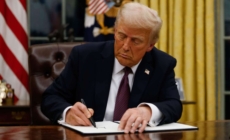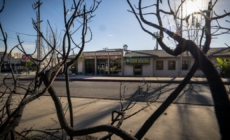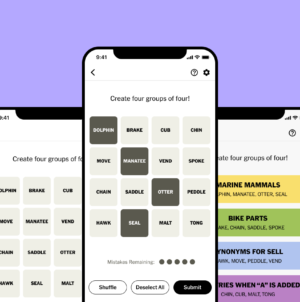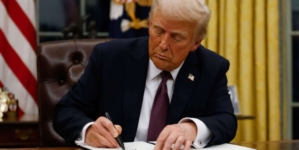-
‘Connections’ January 21: Answers and Hints for Puzzle #590 - 15 mins ago
-
2025 CFP Championship odds: Who will win next year’s 12-team tournament? - 34 mins ago
-
Former Vice President Kamala Harris’ first stop in California: Altadena fire zone - 34 mins ago
-
Penguins Looking to Trade Many Big-Name Players: Report - 54 mins ago
-
Saquon Barkley: Can the Washington Commanders CONTAIN him in NFC Championship game? | NFL on FOX Pod - about 1 hour ago
-
Man Who Reported Father to FBI After Jan. 6 ‘Terrified’ of Trump Pardons - 2 hours ago
-
Can Ben Johnson get the BEST out of Caleb Williams, Chicago Bears? | NFL on FOX Pod - 2 hours ago
-
When Will Jan. 6 Defendants Be Released? What We Know on Trump Pardons - 2 hours ago
-
Trump orders Justice Department to not enforce TikTok ban - 2 hours ago
-
Altadena sheriff’s station reopens after smoke contaminant closure - 3 hours ago
Queen Elizabeth II wasn’t told Anthony Blunt was a Soviet spy for years, declassified MI5 files reveal
LONDON — Queen Elizabeth II was not officially informed about the treachery of a senior palace courtier for nearly a decade, newly declassified documents reveal.
Anthony Blunt served as the chief art curator to the royal family, surveying the queen’s pictures, overseeing the paintings in the royal collection and occasionally exhibiting her private treasures to the public. He endeared himself to the queen, so much so that he was given a knighthood — despite the fact that he had lived a double life as a Soviet spy.
The files, among a trove from the intelligence agency MI5 that were released Tuesday by Britain’s National Archives, shed new light on the Cold War scandal at the heart of the British establishment. The saga has long captivated historians and featured in popular culture, from spy novels to Netflix’s “The Crown.”
Blunt confessed in 1964 to spying for the Soviet Union as part of the notorious Cambridge Five spy ring during World War II, but the queen would only be told the full story in 1973 — responding calmly and without surprise, according to the documents. His true identity was eventually exposed to the public by former British Prime Minister Margaret Thatcher, speaking in Parliament in 1979.
The security services closely guarded Blunt’s identity given his prominent position, with only a few senior officials informed, though the secret may have been known regardless. The queen’s private secretary, Martin Charteris, was told only that MI5 intended to interrogate Blunt due to his close ties with fellow spy Guy Burgess, who fled to the Soviet Union.
In all likelihood, the events “tell us more about the inability of the state to prosecute Blunt” than a concerted effort by MI5 to keep the late queen in the dark, historian Chris Smith, who authored a biography of Cambridge Five spy John Cairncross, told NBC News.
“To have informed Her Majesty or anyone else for that matter would have been potentially defamatory; it would also have been deemed embarrassing to Her Majesty,” Smith said.
By the time Blunt was revealed to have been a spy, he had also become the consummate establishment figure, “which was acutely embarrassing” for the royal family, Smith added.
As such, concealing the information “would also have allowed the palace to truthfully deny that Her Majesty had any knowledge of Blunt’s espionage activities, shielding her from personal embarrassment.”
Source link































